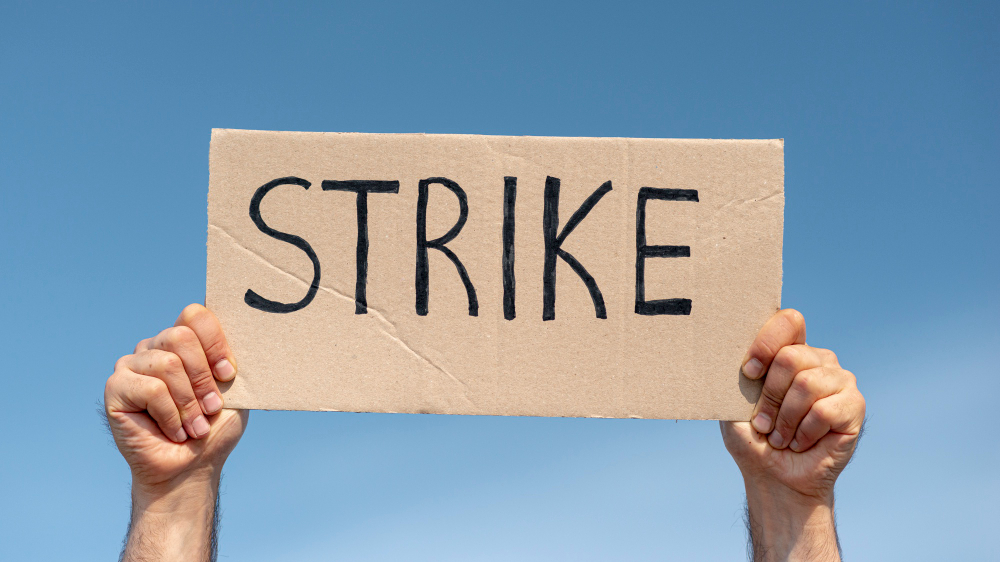The LCBO strike has become a major topic of discussion in Ontario, affecting consumers, employees, and businesses alike. With thousands of workers walking off the job, the strike has led to disruptions in alcohol sales, concerns over workers’ rights, and debates over the future of liquor retailing in the province.
1. What Caused the LCBO Strike?
The LCBO (Liquor Control Board of Ontario) strike began after negotiations between the Ontario Public Service Employees Union (OPSEU) and the LCBO broke down. The key issues leading to the strike include:
A. Job Security and Privatization Concerns
One of the biggest concerns for LCBO workers is job security. The Ontario government has been expanding alcohol sales to grocery stores, convenience stores, and private retailers, which threatens the monopoly of the LCBO. Workers fear that further privatization could lead to job losses and reduced benefits.
B. Wages and Benefits
With inflation rising, LCBO employees are demanding better wages and improved benefits. The union argues that their members deserve fair compensation, especially given the profits the LCBO generates for the province.
C. Working Conditions
Workers have also raised concerns about workplace safety, scheduling, and part-time vs. full-time positions. Many part-time employees are seeking more stable hours and better treatment.
D. Contract Disputes
The previous collective agreement expired, and negotiations for a new one stalled. The union claims that the LCBO and the provincial government were unwilling to meet their demands, forcing workers to strike.
2. How Is the LCBO Strike Affecting Consumers and Businesses?
The strike has led to widespread disruptions in alcohol sales across Ontario. Here’s how different groups are being impacted:
A. Consumers Face Limited Access to Alcohol
- Closed Stores: Many LCBO locations have reduced hours or are completely shut down.
- Stock Shortages: Even open stores may have limited inventory due to supply chain disruptions.
- Longer Wait Times: Consumers report longer lines at remaining open locations.
B. Bars and Restaurants Struggle with Supply
Many licensed establishments rely on the LCBO for bulk orders. With the strike, some bars and restaurants are:
- Running low on popular spirits and wines
- Paying higher prices from private retailers
- Changing menus due to shortages
C. Impact on Private Retailers
While the LCBO strike hurts its own sales, private alcohol retailers (like The Beer Store and grocery stores) are seeing increased demand. However, they may not carry the same variety as the LCBO, leaving some consumers frustrated.
D. Economic Consequences
The LCBO contributes billions in revenue to the Ontario government. A prolonged strike could hurt provincial finances, especially if consumers turn to cross-border shopping or illegal sales.
3. What Are the Workers Demanding?
The OPSEU union has outlined several key demands:
- Job Protection: Guarantees against privatization-related layoffs.
- Higher Wages: Increases to match inflation and recognize worker contributions.
- Better Benefits: Improved healthcare and retirement benefits.
- Fair Scheduling: More full-time positions and stable hours for part-time workers.
- Improved Workplace Safety: Better protections against harassment and overwork.
The LCBO and provincial government have offered some concessions, but the union argues they don’t go far enough.
4. Where Can You Buy Alcohol During the LCBO Strike?
If your local LCBO is closed, here are some alternatives:
A. The Beer Store
- Still operational during the strike
- Sells beer, cider, and some ready-to-drink cocktails
B. Grocery Stores
- Select Ontario grocery stores sell beer, wine, and sometimes spirits
- Availability varies by location
C. Ontario Cannabis Store (OCS)
- Not affected by the strike
- An option for those looking for legal cannabis instead of alcohol
D. Online Ordering from Out-of-Province
- Some consumers are ordering from Quebec or Manitoba where alcohol laws are different
- Be aware of Ontario’s import limits (e.g., you can bring only a limited amount for personal use)
E. Local Craft Breweries and Wineries
- Many small breweries and wineries sell directly to consumers
- A great way to support local businesses
5. What Does the Future Hold for LCBO and Alcohol Sales in Ontario?
The strike raises bigger questions about the future of alcohol retailing in Ontario:
A. Will the LCBO Lose Its Monopoly?
The government has already expanded alcohol sales to more retailers. If privatization continues, the LCBO’s role could shrink, leading to more job cuts.
B. Could the Strike Lead to Permanent Changes?
If the union wins major concessions, it could set a precedent for other public sector workers. If the government holds firm, we might see more privatization.
C. Will Consumers Shift to Private Retailers Permanently?
If people get used to buying alcohol elsewhere during the strike, the LCBO might lose long-term customers.
D. Potential Government Intervention
The province could legislate workers back to work, but this would anger unions and could lead to further labor disputes.
Conclusion: The LCBO Strike Is More Than Just About Alcohol
The LCBO strike is a battle over workers’ rights, privatization, and the future of liquor sales in Ontario. While consumers face inconvenience now, the outcome could reshape how alcohol is sold in the province for years to come.
What’s Next?
- Will the LCBO and OPSEU reach a deal soon?
- Will the government step in to end the strike?
- Will this accelerate the move toward privatization?
Stay tuned for updates, and in the meantime, explore alternative ways to purchase alcohol if your local LCBO is affected.
What do you think about the LCBO strike? Share your thoughts in the comments! || FlixHQ

